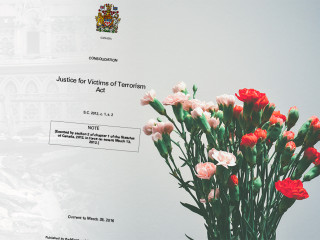Full Decision
This reconsideration decision helps shed some more light on the level of behaviour that will attract costs at the Licence Appeal Tribunal (“LAT”). Here, the LAT upheld its award for $1,000 in costs against the Applicant for withdrawing the Application on the eve of the hearing a second time, with no regard for the efforts of opposing counsel.
On March 28, 2018, the Applicant filed an Application that concerned a treatment plan for catastrophic impairment assessment dated February 5, 2018. A case conference was held September 18, 2018 and the hearing was set for February 20 to 22, 2019. One day before the hearing started, on February 19, 2019, the Applicant emailed the Respondent advising that the Application was being withdrawn, with no explanation provided. The respondent brought a motion for costs on February 25, 2019 but the request was denied.
The Applicant filed a subsequent Application with different issues. A case conference was held on February 7, 2019 and a hearing was scheduled for July 2 to 5, 2019. On March 18, 2019, the Applicant brought a Motion to add the February 5, 2018 treatment plan for catastrophic impairment assessment, the issue on the previously withdrawn Application. The Respondent opposed the motion, but the addition was granted. In the April 9, 2019 Motion Order, Vice Chair Hunter noted that he “in no way condone[d] the cavalier attitude of the Applicant in withdrawing the treatment plan on the eve of the hearing.”
On June 20, 2019, the LAT heard the Respondent’s motion regarding issues in dispute and productions. The Applicant made no mention of any difficulties regarding the hearing to commence July 2, 2019 at this time.
On June 26, 2019, the Applicant brought a motion to add witnesses, to be heard at the onset of the hearing. The Applicant again did not indicate in their materials that there was any problem with the hearing progressing as scheduled.
On June 28, 2019, the last business day prior to the scheduled hearing, the Applicant emailed the Respondent requesting an adjournment due to the unavailability of an essential witness, advising that they would withdraw the Application if the adjournment was refused. The Respondent did not consent, so the Applicant withdrew the Application on the same date.
On July 10, 2019, the Respondent brought a Motion for costs. On July 30, 2019, it was ordered that the Applicant pay to the Respondent costs in the amount of $1,000. The Applicant filed a request for reconsideration, advancing three grounds. Vice Chair Hunter dismissed the Applicant’s request for reconsideration.
Ground 1: The Applicant claimed that having Vice Chair Hunter determine the cost request raised a reasonable apprehension of bias, as his comments in the April 9, 2019 Order with regards to the Applicant’s “cavalier attitude” demonstrated a predetermination of the issue. Vice Chair Hunter rejected this allegation, noting that in the July 30, 2019 Motion Order he found that having been subject to a prior request for costs for a last-minute withdrawal the Applicant was effectively put on notice that repeat withdrawal would result in a cost request. Describing the Applicant’s conduct as “cavalier” was meant to describe the offhand disregard for the efforts of opposing counsel. The award for costs was predicated on the fact that the applicant had withdrawn the Application on the eve of a multi-day, in-person hearing for the second time in a period of a few months, which conduct was unreasonable.
Ground 2: The decision was made on false and misleading evidence from a party which was discovered after the hearing and would have affected the result, under Rule 18.2(c). The Order stated that the Respondent submitted that the Applicant did not attempt to have the witnesses accommodated through additional hearing dates or attendance by teleconference. The Applicant argued that this finding in the Order was actually submitted outside of the Respondent’s written materials and was not included in the written submissions. Vice Chair Hunter rejected this argument, noting that the Respondent wrote in their Motion submissions that “Accommodation of witnesses through reliance on paper reports, additional hearing dates being scheduled, or attendance by telephone are widely available.” Additionally, the email from the Applicant to the Respondent offered no alternative other than consent to the adjournment or the application will be withdrawn.
Ground 3: There was a significant error made in characterizing the withdrawal as a litigation strategy as no analysis was provided as to why that finding of fact was made. Vice Chair Hunter determined that such a description was indeed appropriate as the adjournment request was an all or nothing situation, and it was clear the threat of withdrawal was used to obtain consent to the adjournment.














